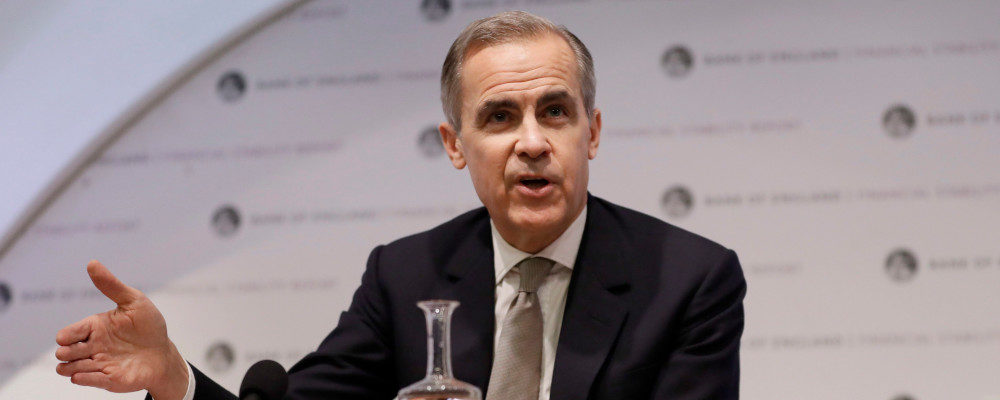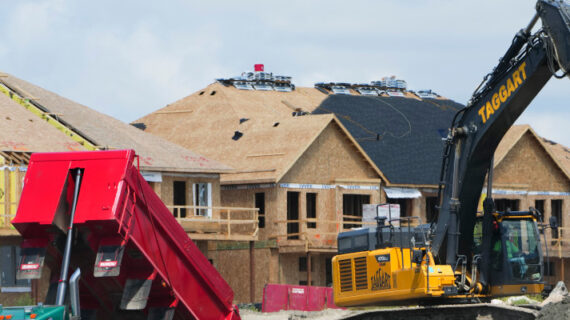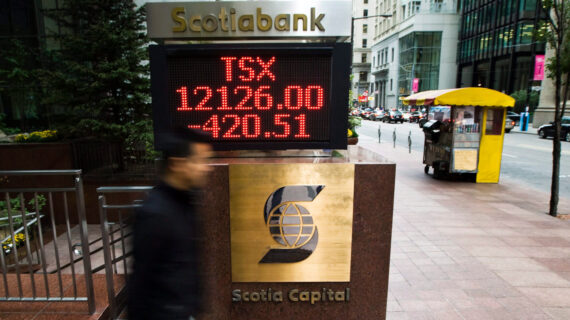A little while ago I came across a tweet with a quote from Mark Carney to a reception in Ottawa which he apparently told a crowd of the country’s political establishment: “You don’t shelter from the storm, you make the weather.”
On the one hand, this is a pretty standard cliché from an aspiring politician or senior public servant who understands how much his or her audience likes being told how important they are. In this sense, it reminds one of then-candidate Barack Obama’s similarly hubristic line, “We’re the ones we’ve been waiting for. We are the change that we seek.”1Barack Obama’s Feb. 5 Speech https://www.nytimes.com/2008/02/05/us/politics/05text-obama.html
Yet, on the other hand, it stuck in my mind because it offers what I think is a key to understanding how many of our leaders like Carney see the process of governing. In so doing, it brings expression to a set of competing visions about the role and capacity of the state to engineer economic and social outcomes.
The first vision is the Carney weather-maker vision. It reflects the idea that policymakers are “shaping the weather” as they make the decisions that order our world. The second vision would say that governing is more properly understood as being like a ship captain sailing the seas and ending up in storms over which he or she has limited control.
The weather-makers vision of government is unsurprisingly appealing to politicians and the much larger group of ambitious people who identify as part of the leadership class. It is the underlying philosophy of several different political theories that gained much popularity in the 20th century ranging from communism to neoliberal technocracy. There are of course tremendous conceptual and practical differences between these different political economy models but they ultimately share a faith that government is capable of shaping the world at will.
It is not surprising that Carney is of this school coming from the world of central bankers which is often exhibit A in modern liberal democracies for the technocratic impulse. Of course, the bankers’ record in the last 25 years has not exactly been perfect, as seen with both the leadup to the financial crisis in 2008 and the current struggles with higher-than-targeted inflation.2Why are Tories having a go at central bankers? https://thehub.ca/2022-07-25/mitch-heimpel-why-are-tories-having-a-go-at-central-bankers/ In both cases, the central banks were offering calm reassurances to critics that they had everything nicely under control right up until the point at which it became clear they did not.
And this gets at the big problem of the weather-making paradigm. It overestimates the ability of policymakers and political institutions to shape outcomes in a complex world. The runup of government and household debt in the leadup to the 2008 crisis is another case in point. The underlying cause was in large part due to the understandable desire by American political leaders to boost homeownership and to keep the economy going in the face of shocks like the tech meltdown or the fallout of 9/11. Yet they failed to foresee the risk this posed until the entire financial system suddenly was in crisis.
These examples raise the bigger question of whether the problem is that we just have bad central bankers and that better ones could have avoided such problems, or if the world is simply too complex for any institution to work out all eventualities. Or the fact that there is not always a “right choice” in the first place. What we rather face often is a series of trade-offs.
This understanding of the world places less emphasis on the role of the wise technocrats and more on a more limited conception of the role and capacity of government. This alternative approach necessarily elevates elected officials over non-elected technocrats to forge compromises that can secure wide democratic acceptance. It suggests having a sense of modesty about what can be achieved.
These competing visions are reflected in part in the ongoing arguments about COVID-19 policy. On the one side, there are many people who are convinced that if we only had the right policy we could have achieved a COVID-zero outcome. For people who were much more skeptical of government’s ability to shape things, this confidence has often seemed delusional. The result though is that much of the debate over COVID-19 policies over the past two years has featured two sides just talking past each other and unable to grasp the basic assumptions the other was coming from.
It is worth noting that if one looks at the actual (and often messy) policymaking process during the pandemic that most governments around the world followed, it offers much more evidence for the ship captain metaphor than the weather-making one. Governments frantically improvised and saw their attempts to create careful plans upended by the virus’s refusal to follow their attempt to impose order upon the pandemic.
This is not at all to say that COVID-era policymaking ought to be viewed as a standard or even the norm. At the risk of pushing the metaphor too far, it should be emphasized that seeing government as a ship captain does not mean governing with no plan. After all, a ship captain who goes through the storm with no destination in mind is probably not someone whose ship you want to be on. Ostensibly you want a captain who can safely guide the ship to safe harbour while respecting the many things he or she does not control.
This ultimately reflects why it is that the weather-maker metaphor is a dangerous guide to governing. It misleads policymakers into focusing on grand plans to remake the world often at the cost of those leaders paying attention to the smaller things that they actually can control. And this is ultimately a route to an ugly shipwreck.




